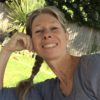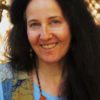We are delighted to announce the winners of the 2017 Fish Short Memoir Contest, as chosen by judge Vanessa Gebbie.
The 10 short memoirs will be published in the 2017 Fish Anthology.
Vanessa’s comments on the memoirs are with each one, and her overall notes on the judging are below, followed by biographical information on each of the authors.
There were 784 entries to the contest.
First Prize: (€1,000)
Pay Attention by Paul McGranaghan (Dublin)
“ This was my ‘stand-out’ piece among a strong field. Beautifully written, intimate and atmospheric, a second person unfolding that draws the reader right in with exhortations to ‘come and see’, to ‘look’, watch’, as the writer describes in gorgeous, often disturbing prose, their childhood experiences of The Troubles.
…our house feels as though it has been lifted a few centimeters off the ground and dropped. All the radiators chime like tuning forks. We awake only to return to sleep.
Listen to what my mother tells us: “It’s only a bomb”.
The refrain phrases ‘come and see’, ‘look’ and ‘watch’ are not only hugely successful stylistically, drawing me in to be a bystander in the episodes described, but are an echo of the school reader books of the time. They are a constant gentle reminder that these events are being recalled from childhood, that the things a child sees and remembers may differ from those of an adult.
Characters from the memories step into the spotlight and live again, opening up into wonderfully observed descriptions of place:
My grandmother takes snuff, swears and removes her false teeth in public. She eats so many cinnamon Imperials that she smells of cinnamon and she swigs her tea from an old glass tankard.
This is where she lives: Her terraced house overlooks the park. To one side of the park is an orchard that runs behind the Victorian parochial house, which in turn sits behind the great stone snail of the Sacred Heart Church.
Disturbing events are related with a directness and simplicity which throws their horror into stark relief:
I remember the pylons with electricity singing in their ears, the whole world lush, green and cold, and a naked boy. His hands cover his crotch. His howling mouth is a red circle and his eyes are screwed up into crow’s-feet. He crosses the field towards us. He is as pale as candle wax.
I could go on and on, pulling out examples, to show you why I loved this piece. I haven’t yet said how beautiful some of the scenes are. So read it. Look. Go and see. And join me in congratulating this writer, whoever it be.”
The Master by Tom Finnigan (Donegal)
“The shortest of all the shortlist, and a terrific piece – The Master is the tale of a failed student priest who becomes a lorry driver in his father’s demolition firm.
The glimmering wetness of pot-holes brimming after rain and the roar of the crane conspired to make me think I was Dante being led by Virgil into Hell. I was led instead to a squat tipper truck. Behind the windscreen, a Daily Mirror twitched and a cap bobbed. Maurice banged on the driver’s door.
“Get out of that, you dirty auld Mayo whore and show a bit of respect.”
And here, the teacher is introduced – the wonderful Paddy Walshe – once met, never forgotten! In The Master, the day to day roughhousing and toughness of this new occupation are brilliantly juxtaposed with memories of the gentler experiences of the student priest, adding a touch of wry comedy to the whole:
Palms used to smooth metaphysical texts bled with splinters – my Manchester stigmata.
I loved the thoughtfulness of this piece, and especially the concluding thought – that acts of love are found in unexpected places, and everywhere.”
Third Prize:
Sand on the Mountain by Mary Griese (Somerset, UK)
“A very atmospheric, beautifully written account of a young family buying a Welsh hill farm, something from another era, and the neighbours – everything superbly evoked, drawing me in, bringing a lost generation into striking view. The characters in this piece are marvellously alive – this piece was much enjoyed.”
Honorary Mentions:
Dear Eilis by Therese Ryan. (Sligo)
“A direct and poignant letter to a birth mother, ‘Dear Eilis’ charts unflinchingly and with increasing quiet desperation the dance between the mother who is unwilling to tell her family about her extra child, and the child she gave away. Sensitively done, it is so easy to fall into sentimentality with this subject (I am an adopted adult myself) – but this writer is completely in control and the journey is very compelling.”
Sound of Stone by Chris Mulvey (California)
This impressive piece with its marvellous visceral detail never dips into sentimentality, rather sets out a compelling series of episodes which unfold with enormous care and control.
Baggage by Martin Cromie (N. Ireland)
“A very nicely done account of an elderly mother decluttering, and her son catching the bug himself when he is diagnosed with suspected cancer. The characters bounce off the page – I enjoyed the patterns in this piece, the movement, and the terrific writing.”
What Remains by Barbara Fried (California)
“I thought this exploration of a few moments in a much loved parent’s decline into dementia was great – this subject, I suspect, is a well trodden one – but this piece is set out as just a conversation, very simple, indeed deceptively simple. The father’s personality glimmers in and out of focus as the exchanges repeat and return, and I found myself thinking how effective this was – a successful example of ‘less is more’.”
Elbow Grease by John Killeen (Carlow)
I did love the voice in this piece, the pace which bounced along in a refreshing way, and the marvellous humour bouncing between the characters in both dialogue and action.
New York 1981 by Aneko Campbell (UK)
From cockroaches to beggars, creepy pick-ups, drugs and bigotry, a patronising top author – a perfect anti-travelogue describing the New Yawk of 1981. I enjoyed this piece, its unflinching bursting of the idealist’s bubbles, really well-written.
Poland – A Pilgrimage by Tod Benjamin (Dorset, UK)
A journey of discovery, seeking roots, following the map of memories and snippets of knowledge some of which have lasted eight decades. I was impressed and moved by this piece, and felt I was alongside as the experiences unfolded.
Vanessa Gebbie’s notes on judging the Short Memoir Contest .
.
It was a joy to read the shortlist, and as ever, a difficult job to deselect work which was obviously well put together and fascinating to discover. It was an enormous privilege to judge a memoir competition – a very different experience to judging fiction, in that I felt constantly that I was being entrusted with glimpses into a life, and how hard it was to separate those glimpses into top ten and ‘the rest’. In the end though, with each read-through the top entries selected themselves for one reason or another. I was looking for terrific writing of course – something Fish attracts in spades, and I was richly rewarded right across the spectrum. I was looking for engagement, for that compelling element that drew me in and wouldn’t let me go until the piece was finished. And that ‘something indefinable’ which ensures that a piece of work speaks directly to you, stays with you and changes you slightly.
The winning entry, “Pay Attention” stood out right from the start, and delivered on those criteria easily, and seemingly effortlessly. It is beautifully written, intimate and very atmospheric, a second person unfolding that draws the reader right in with exhortations to ‘come and see’, to ‘look’, watch’, as the writer describes in gorgeous, often disturbing prose, their childhood experiences of The Troubles.
…our house feels as though it has been lifted a few centimeters off the ground and dropped. All the radiators chime like tuning forks. We awake only to return to sleep.
Listen to what my mother tells us: “It’s only a bomb”.
The refrain phrases ‘come and see’, ‘look’ and ‘watch’ are not only hugely successful stylistically, drawing me in to be a bystander in the episodes described, but are an echo of the school reader books of the time. They are a constant gentle reminder that these events are being recalled from childhood, that the things a child sees and remembers may differ from those of an adult. Characters from the memories step into the spotlight and live again, opening up into wonderfully observed descriptions of place:
My grandmother takes snuff, swears and removes her false teeth in public. She eats so many cinnamon Imperials that she smells of cinnamon and she swigs her tea from an old glass tankard.
This is where she lives: Her terraced house overlooks the park. To one side of the park is an orchard that runs behind the Victorian parochial house, which in turn sits behind the great stone snail of the Sacred Heart Church.
Disturbing events are related with a directness and simplicity which throws their horror into stark relief:
I remember the pylons with electricity singing in their ears, the whole world lush, green and cold, and a naked boy. His hands cover his crotch. His howling mouth is a red circle and his eyes are screwed up into crow’s-feet. He crosses the field towards us. He is as pale as candle wax.
I could go on and on, pulling out examples, to show you why I loved this piece. I haven’t yet said how beautiful some of the scenes are. So read it. Look. Go and see. And join me in congratulating this writer, whoever it be.
Second, ‘The Master’, was by far the shortest in the shortlist and a terrific piece, the tale of a failed student priest who becomes a lorry driver in his father’s demolition firm. It is a great example of ‘less is more’. The writer approaches the events with clarity, with wry humour and fabulous characterisation, as the experiences of this very gritty job are contrasted with the gentle life of the priesthood.
The glimmering wetness of pot-holes brimming after rain and the roar of the crane conspired to make me think I was Dante being led by Virgil into Hell. I was led instead to a squat tipper truck. Behind the windscreen, a Daily Mirror twitched and a cap bobbed. Maurice banged on the driver’s door.
“Get out of that, you dirty auld Mayo whore and show a bit of respect.”
Thus the eponymous ‘master’ is introduced – the wonderful Paddy Walshe – once met, never forgotten. I particularly loved the thoughtfulness of this piece, especially the concluding thought – that acts of love are found in unexpected places, and everywhere.
And third place, ‘Sand on the Mountain’, is a very atmospheric, beautifully written account of a young family buying a run-down Welsh hill farm, something from another era, and the neighbours – everything superbly evoked, drawing me right in, bringing a lost generation into striking view. The characters in this piece are marvellously alive – much enjoyed – I won’t forget this one in a hurry.
Seven more – all of which I commend to you as great examples of memoir, marvellous, generous glimpses into the writers’ lives. As an adopted adult myself, I was drawn to the unflinching bravery of both ‘Dear Eilis’ and ‘Sound of Stone’ which explore connected experiences from opposite ends of the spectrum. I appreciated the controlled emotion beneath them both, their lack of sentimentality and freshness on what is after all a well-trodden path. It was that sense of ‘newness’ that drew me to ‘Baggage’ and ‘What Remains’ too – firstly the decluttering of an elderly parent beginning a shift for the narrator, and secondly a glimpse of dementia via a simple conversation. Both memorable, poignant, and straight. ‘Elbow Grease’ is a contrast – I loved the humour here. ‘New York City 1981’ was a surprise – an undoing of all the cliches surrounding the Big Apple. And finally , ‘Polish PIlgrimage’ – a compelling journey of discovery later in life.
I hope you enjoy them all, and will join me in congratulating all these wonderful writers. And a reminder to ‘The Rest’. Just because I didn’t choose your piece in the top ten does not mean it isn’t very good indeed. To get to a Fish shortlist is an achievement in itself, and any judge will acknowledge the element of subjectivity in their final choices. There was not a single one I didn’t enjoy – they were all terrific reads – thank you.
End.
Biographies:

Paul McGranaghan was born in Derry and began growing up in Strabane. He studied Zoology in Manchester, worked as a microbiologist near Aberystwyth, Wales, and as a Neuroscientist, again in Manchester. He has travelled throughout Ireland and Europe, living for a year in Italy and two years in Spain. He has been published as a prize-winning travel/nature writer by the BBC, and in Literary Orphans, Paragraphiti, The Corner Club Press and Lowestoft Chronicle. He was recently short-listed by the Irish Times for Travel Writer of the Year. He lives in Dublin, where he enjoys receiving gifts.
 Tom Finnigan is an Irish citizen with a Manchester accent. Married to Susie, he has three children and five grandchildren. Buying and selling cranes gives him a living. He came to Donegal in 2001 and joined Derry Playhouse Writers. He likes to evoke a sense of place in what he writes. BBC Radio Ulster and RTE Lyric FM have broadcast some of his stories; a few have featured in magazines.
Tom Finnigan is an Irish citizen with a Manchester accent. Married to Susie, he has three children and five grandchildren. Buying and selling cranes gives him a living. He came to Donegal in 2001 and joined Derry Playhouse Writers. He likes to evoke a sense of place in what he writes. BBC Radio Ulster and RTE Lyric FM have broadcast some of his stories; a few have featured in magazines.

When Mary Griese lived with her husband and two young children on a remote Welsh hill farm on the Black Mountain, she was sheep farming, writing about sheep and painting commissions of prize ewes and rams. There, she built up her arty business: ‘Slightly Sheepish’. She’s completed the MA in creative writing at Bath and published a picture book: An Alphabet of Farm Animals. She has two grandchildren and lives on a Somerset dairy farm.
 Therese Ryan lives in Ballymote Co Sligo. She is a teacher and devotee of Iyengsr Yoga
Therese Ryan lives in Ballymote Co Sligo. She is a teacher and devotee of Iyengsr Yoga
C hris Mulvey left her workIn 1998, then forty, as a community educator and organiser in Dublin to follow a call from a mountain in Montana. Sixteen years of cavorting with bison, grizzlies, wolves and wilderness led her to N. California where, with her husband, and still in the company of bears, raptors and tall trees, she’s participating with other writers, dancers and activists in America’s political awakening, gift of what lives for now, in Washington.
hris Mulvey left her workIn 1998, then forty, as a community educator and organiser in Dublin to follow a call from a mountain in Montana. Sixteen years of cavorting with bison, grizzlies, wolves and wilderness led her to N. California where, with her husband, and still in the company of bears, raptors and tall trees, she’s participating with other writers, dancers and activists in America’s political awakening, gift of what lives for now, in Washington.

Martin Cromie is a 60 year old grandfather from Newry. Following early retirement from Education Administration, he gained an MA and PhD in Creative Writing from the Seamus Heaney Centre at Queens University Belfast. His non-fiction, fiction and poetry have appeared in journals, magazines and anthologies and he has been shortlisted for a number of Short Story Competitions. He hopes to have a full length work of Landscape Literature published in the near future.
 Barbara Fried. By day, I am a law professor at Stanford University. By night, weekend, and in other stolen moments, I write fiction. Mostly I have no trouble telling day from night. My stories have been published in Bellevue Literary Review, Subtropics, and Guernica, among other places. “After Henry” won Los Angeles Review’s 2016 Flash Fiction contest. “The Half-Life of Nat Glickstein” was chosen as a distinguished story of 2013 in Best American Short Stories.
Barbara Fried. By day, I am a law professor at Stanford University. By night, weekend, and in other stolen moments, I write fiction. Mostly I have no trouble telling day from night. My stories have been published in Bellevue Literary Review, Subtropics, and Guernica, among other places. “After Henry” won Los Angeles Review’s 2016 Flash Fiction contest. “The Half-Life of Nat Glickstein” was chosen as a distinguished story of 2013 in Best American Short Stories.

John Killeen. As Shakespeare put it; ‘There is a tide in the affairs of men, which, taken at the flood leads on to victory…’ The idea is; that if you don’t grab your chances in the moment they are presented, you end up in ‘the shallows’. That about describes my contact with The Irish Times in the early 1980s when Douglas Gageby offered me a job and I was not in a position take it.

Aneko Campbell is a pseudonym. The author works in the field of mental health and has a
recurring fantasy that someone will pay her a large amount of money to listen to jokes all day. In a previous incarnation, she has been published in a variety of print and online publications.
 Tod Benjamin was born in London in 1936. After careers in retail management and chemicals, he retired from globe-trotting to enjoy voluntary work. While Chairman of Elmwood College he became an F.R.S.A., and from1993-1998 tutored numeracy and literacy in the Palm Beach County schools system in Florida. Then, he volunteered at Bournemouth Hospital, and still teaches an IT course on behalf of Age UK Bournemouth. Always a poet, Tod has at last, at eighty, become a published author.
Tod Benjamin was born in London in 1936. After careers in retail management and chemicals, he retired from globe-trotting to enjoy voluntary work. While Chairman of Elmwood College he became an F.R.S.A., and from1993-1998 tutored numeracy and literacy in the Palm Beach County schools system in Florida. Then, he volunteered at Bournemouth Hospital, and still teaches an IT course on behalf of Age UK Bournemouth. Always a poet, Tod has at last, at eighty, become a published author.

































 .
.
 Tom Finnigan is an Irish citizen with a Manchester accent. Married to Susie, he has three children and five grandchildren. Buying and selling cranes gives him a living. He came to Donegal in 2001 and joined Derry Playhouse Writers. He likes to evoke a sense of place in what he writes. BBC Radio Ulster and RTE Lyric FM have broadcast some of his stories; a few have featured in magazines.
Tom Finnigan is an Irish citizen with a Manchester accent. Married to Susie, he has three children and five grandchildren. Buying and selling cranes gives him a living. He came to Donegal in 2001 and joined Derry Playhouse Writers. He likes to evoke a sense of place in what he writes. BBC Radio Ulster and RTE Lyric FM have broadcast some of his stories; a few have featured in magazines.
 Therese Ryan lives in Ballymote Co Sligo. She is a teacher and devotee of Iyengsr Yoga
Therese Ryan lives in Ballymote Co Sligo. She is a teacher and devotee of Iyengsr Yoga hris Mulvey left her workIn 1998, then forty, as a community educator and organiser in Dublin to follow a call from a mountain in Montana. Sixteen years of cavorting with bison, grizzlies, wolves and wilderness led her to N. California where, with her husband, and still in the company of bears, raptors and tall trees, she’s participating with other writers, dancers and activists in America’s political awakening, gift of what lives for now, in Washington.
hris Mulvey left her workIn 1998, then forty, as a community educator and organiser in Dublin to follow a call from a mountain in Montana. Sixteen years of cavorting with bison, grizzlies, wolves and wilderness led her to N. California where, with her husband, and still in the company of bears, raptors and tall trees, she’s participating with other writers, dancers and activists in America’s political awakening, gift of what lives for now, in Washington.
 Barbara Fried. By day, I am a law professor at Stanford University. By night, weekend, and in other stolen moments, I write fiction. Mostly I have no trouble telling day from night. My stories have been published in Bellevue Literary Review, Subtropics, and Guernica, among other places. “After Henry” won Los Angeles Review’s 2016 Flash Fiction contest. “The Half-Life of Nat Glickstein” was chosen as a distinguished story of 2013 in Best American Short Stories.
Barbara Fried. By day, I am a law professor at Stanford University. By night, weekend, and in other stolen moments, I write fiction. Mostly I have no trouble telling day from night. My stories have been published in Bellevue Literary Review, Subtropics, and Guernica, among other places. “After Henry” won Los Angeles Review’s 2016 Flash Fiction contest. “The Half-Life of Nat Glickstein” was chosen as a distinguished story of 2013 in Best American Short Stories. 

 Tod Benjamin was born in London in 1936. After careers in retail management and chemicals, he retired from globe-trotting to enjoy voluntary work. While Chairman of Elmwood College he became an F.R.S.A., and from1993-1998 tutored numeracy and literacy in the Palm Beach County schools system in Florida. Then, he volunteered at Bournemouth Hospital, and still teaches an IT course on behalf of Age UK Bournemouth. Always a poet, Tod has at last, at eighty, become a published author.
Tod Benjamin was born in London in 1936. After careers in retail management and chemicals, he retired from globe-trotting to enjoy voluntary work. While Chairman of Elmwood College he became an F.R.S.A., and from1993-1998 tutored numeracy and literacy in the Palm Beach County schools system in Florida. Then, he volunteered at Bournemouth Hospital, and still teaches an IT course on behalf of Age UK Bournemouth. Always a poet, Tod has at last, at eighty, become a published author.